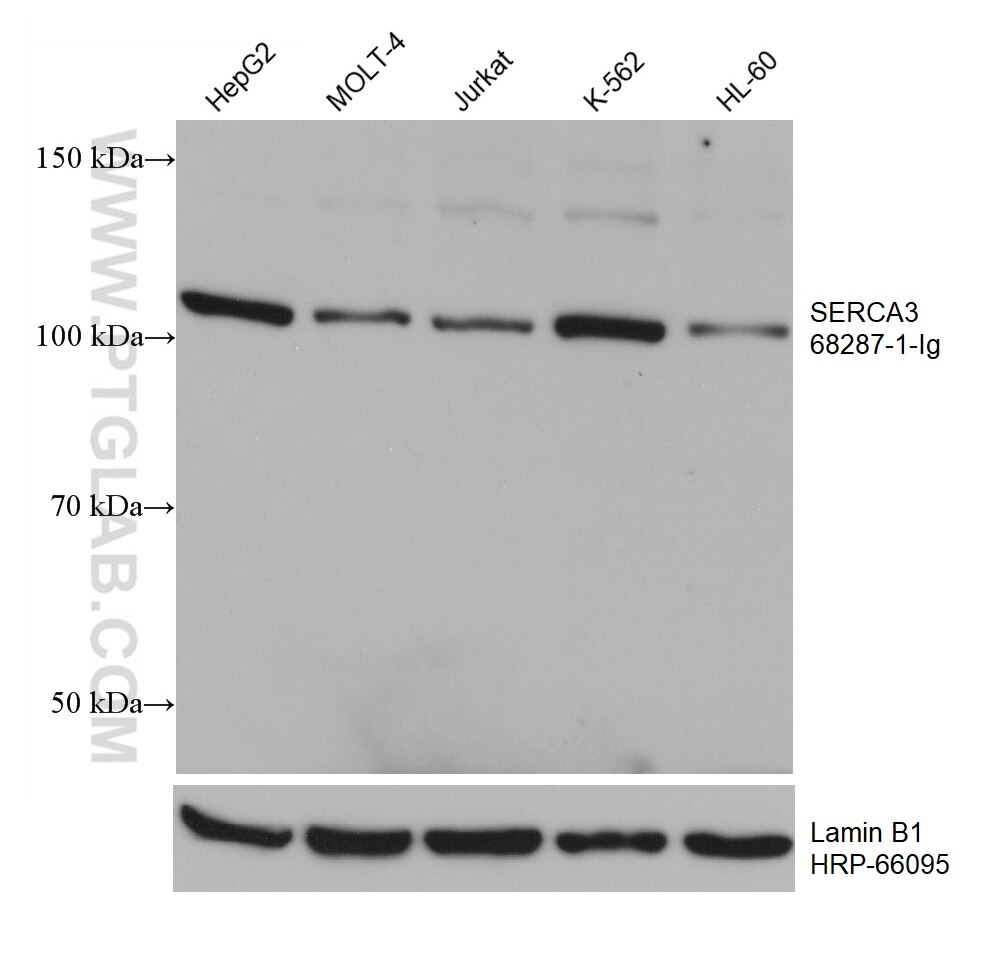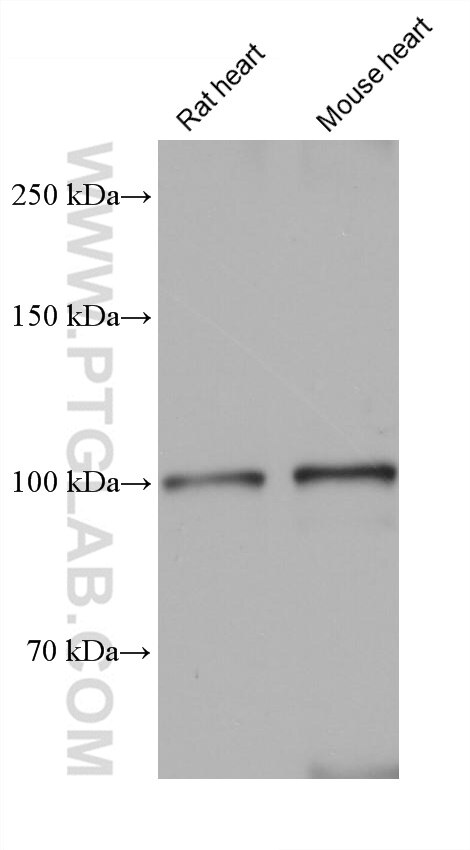SERCA3 Monoclonal antibody
SERCA3 Monoclonal Antibody for WB, ELISA
Host / Isotype
Mouse / IgG1
Reactivity
Human, mouse, rat
Applications
WB, ELISA
Conjugate
Unconjugated
CloneNo.
1A2C2
Cat no : 68287-1-Ig
Synonyms
Validation Data Gallery
Tested Applications
| Positive WB detected in | HepG2 cells, mouse heart tissue, MOLT-4 cells, Jurkat cells, K-562 cells, HL-60 cells, rat heart tissue |
Recommended dilution
| Application | Dilution |
|---|---|
| Western Blot (WB) | WB : 1:5000-1:50000 |
| Sample-dependent, check data in validation data gallery | |
Product Information
68287-1-Ig targets SERCA3 in WB, ELISA applications and shows reactivity with Human, mouse, rat samples.
| Tested Reactivity | Human, mouse, rat |
| Host / Isotype | Mouse / IgG1 |
| Class | Monoclonal |
| Type | Antibody |
| Immunogen | SERCA3 fusion protein Ag4527 相同性解析による交差性が予測される生物種 |
| Full Name | ATPase, Ca++ transporting, ubiquitous |
| Calculated molecular weight | 1043 aa, 114 kDa |
| Observed molecular weight | 97-110 kDa |
| GenBank accession number | BC035729 |
| Gene symbol | ATP2A3 |
| Gene ID (NCBI) | 489 |
| Conjugate | Unconjugated |
| Form | Liquid |
| Purification Method | Protein G purification |
| Storage Buffer | PBS with 0.02% sodium azide and 50% glycerol pH 7.3. |
| Storage Conditions | Store at -20°C. Stable for one year after shipment. Aliquoting is unnecessary for -20oC storage. |
Background Information
The SERCA, which pumps cytosolic Ca2+ into the ER, is an imperative maintainer of ER Ca2+ homeostasis. The mammalian SERCA family is comprised of three tissue-specific members, SERCA1-3. SERCA3 is present in endothelial and epithelial cells of various tissues. SERCA3 helps regulate intracellular Ca2+, which is critical for maintaining normal INS secretion and is closely linked to metabolism, neuronal plasticity, gene transcription, cell growth, differentiation, apoptosis, protein folding and carcinogenesis. Several isoforms of SERCA3 exist due to the alternative splicing.
Protocols
| Product Specific Protocols | |
|---|---|
| WB protocol for SERCA3 antibody 68287-1-Ig | Download protocol |
| Standard Protocols | |
|---|---|
| Click here to view our Standard Protocols |



